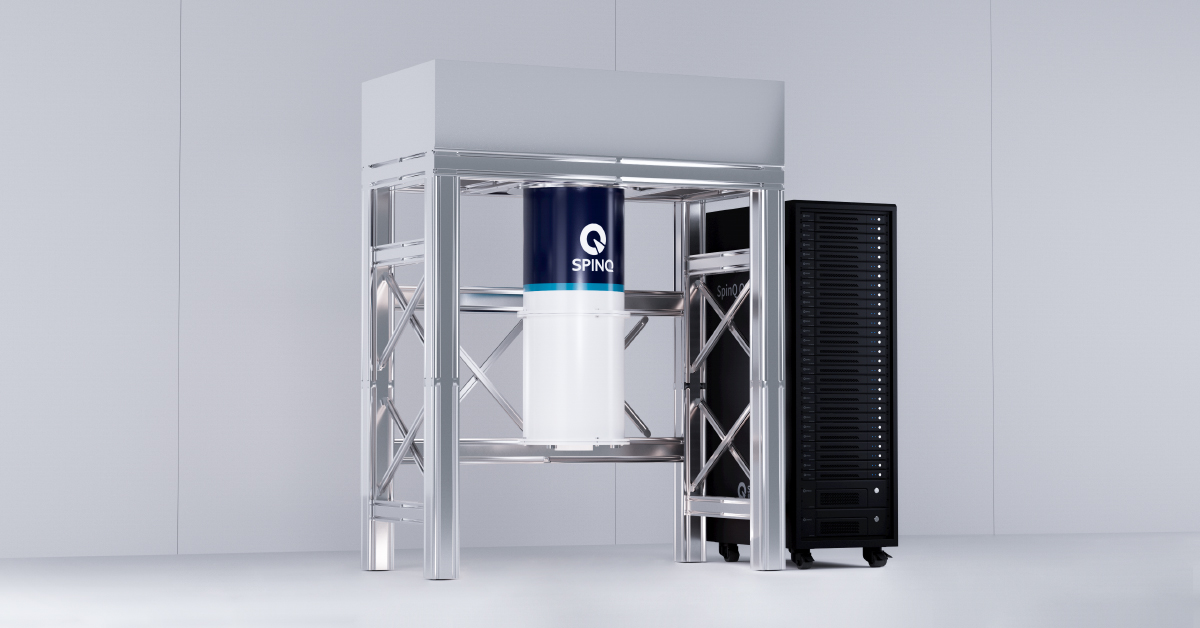Superconducting Quantum Computers: A Beginner's Guide to Tomorrow's Technology - SPINQ 101
2024.10.21 · Blog quantum advantagequantum readyquantum supremacy
Quantum computing promises to revolutionize how we solve complex problems by harnessing quantum physics' weird but powerful principles. One promising approach is superconducting quantum computers, which employ superconducting qubits as the core processing element. These devices take advantage of superconductivity's calculation power in performing calculations that exceed today's classical computers' ability. This guide will discuss how superconducting quantum computers work, the fundamental principles behind their existence, and companies like SPINQ Technology who are pioneering this exciting field.
Quantum Computing Basics: A New Era of Computation
 floating in a digital space, connected by com.webp)
Quantum computing stands out from classical computing in how it processes information. Classical computers use bits, which represent either zero or one. Qubits in quantum computers exist in a state called superposition - that means they can exist both as 0, 1, or both simultaneously! This unique property allows quantum computers to run multiple calculations at the same time, dramatically increasing computational power.
Entanglement is another crucial concept in quantum mechanics. When qubits become entangled, their respective states directly impact each other regardless of distance between them - an effect which allows faster and more efficient processing as quantum computers use this interconnection between qubits to simultaneously evaluate multiple outcomes simultaneously.
One of the major obstacles in quantum computing lies in its delicate quantum states. Quantum systems are highly susceptible to decoherence - an effect in which information about quantum states is lost through environmental interference - so one of the central goals in creating functional quantum computers lies in maintaining enough qubit stability long enough for useful calculations.
Superconductivity Is Key for Superconducting Quantum Computers Superconductivity is at the core of making superconducting quantum computers work, acting like an energy storage medium by conducting electricity with zero resistance at temperatures below absolute zero (-273degC). At these low temperatures, electrical current can flow unimpeded without energy loss - an essential characteristic for maintaining stable quantum operations.
Superconducting qubits made from materials like niobium or aluminum are integrated into quantum microchips for use. Due to a lack of electrical resistance, superconducting qubits maintain their quantum states longer for more accurate and efficient quantum computations.
How Superconducting Quantum Computers Work
A key component of superconducting quantum computers is the Josephson junction, an electronic device combining two superconductors separated by an insulating barrier and featuring nonlinear electrical behavior allowing Josephson junctions to switch qubit states through microwave pulses for superposition or entanglement operations - essential aspects of quantum computing.
One popular design used in superconducting quantum computers is the transmon qubit, which offers enhanced stability while decreasing sensitivity to environmental noise. When embedded into quantum microchips, transmon qubits offer reliable scaling solutions for larger calculations.
Superconducting Computing Vs Classical Computing
Superconducting quantum computers have one major advantage over classical systems: their ability to address problems that classical systems find difficult or intractable. Classical computers use sequential information processing with binary logic (0 or 1) and operate efficiently in most tasks; however, they struggle with more difficult problems like simulating molecular behaviors or optimizing large logistical networks--tasks which quickly exceed even powerful classical supercomputers' capacity.
Quantum computers offer another approach. They can simultaneously evaluate multiple solutions simultaneously and exponentially increase computational power when more qubits are added - for example, while factoring large numbers might take years on a classical computer, with quantum computers often doing it in mere seconds.
Superconducting quantum computers offer great promise, yet one of their major challenges lies in scaling. Constructing systems with enough qubits to outshout classical computers requires overcoming substantial engineering hurdles; researchers are working on techniques such as error correction and qubit coherence that could enable large-scale quantum processors in near future applications.
Applications of Superconducting Quantum Computing Superconducting quantum computers offer promise across numerous industries. Cryptography relies on modern encryption protocols which are subject to quantum attacks; drug discovery relies on molecular modelling at unprecedented levels; climate modeling could benefit from quantum computing's ability to process complex environmental data sets for more accurate climate predictions; while drug discovery relies on superconducting quantum computers' unique modeling of molecular interactions which accelerate drug discovery processes.
Financial modeling is another key application area where quantum computers could shine, providing more accurate risk analyses and improving investment strategies. Meanwhile, in logistics quantum computing could revolutionize supply chain optimization, cutting costs while improving efficiencies.
SPINQ: Innovating Superconducting Quantum Technology
At SPINQ, we are pioneering superconducting quantum technology innovation. Our aim is to make quantum computing accessible across industries like finance, biomedicine and logistics by developing practical superconducting quantum computers with high performance quantum processors to help tackle real world problems efficiently.
 SPINQ SOC - Superconducting Quantum Computer
SPINQ SOC - Superconducting Quantum Computer
SPINQ provides state-of-the-art superconducting quantum computing products designed for both research and commercial applications. Our systems integrate key components such as superconducting quantum chips, cryogenic cooling systems and advanced control systems into a comprehensive platform for quantum computing - ideal for use cases such as quantum chemistry, artificial intelligence or financial modeling with fast operations and high coherence rates.
SPINQ superconducting quantum computers feature up to 20 high-fidelity qubits for complex tasks such as quantum chemistry simulation and materials science research. Their Josephson junction integration enables flexible qubit coupling for consistent and reliable performance. In addition, SPINQ's user-friendly systems ensure easy integration into existing infrastructures so businesses can harness quantum computing technology for maximum gain.
For more information about superconducting quantum products and services, don't hesitate to get in touch.
About SPINQ 101 - Your Gateway to Quantum Computing!
SPINQ 101 is a blog series created by SPINQ Technology, dedicated to making quantum computing accessible and fun for everyone. Whether you're curious about what quantum computing really means or wondering how it might impact our world, we've got you covered! Our aim is to break down complex concepts, answer common questions, and spark your interest in this cutting-edge field. Join us as we explore the fascinating world of quantum computing, empowering both learners and professionals to better understand and engage with the future of technology.
Featured Content






